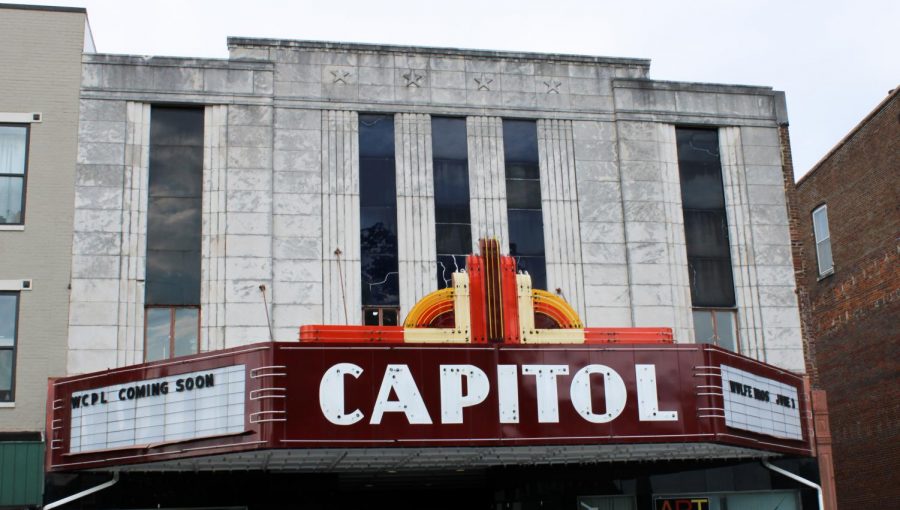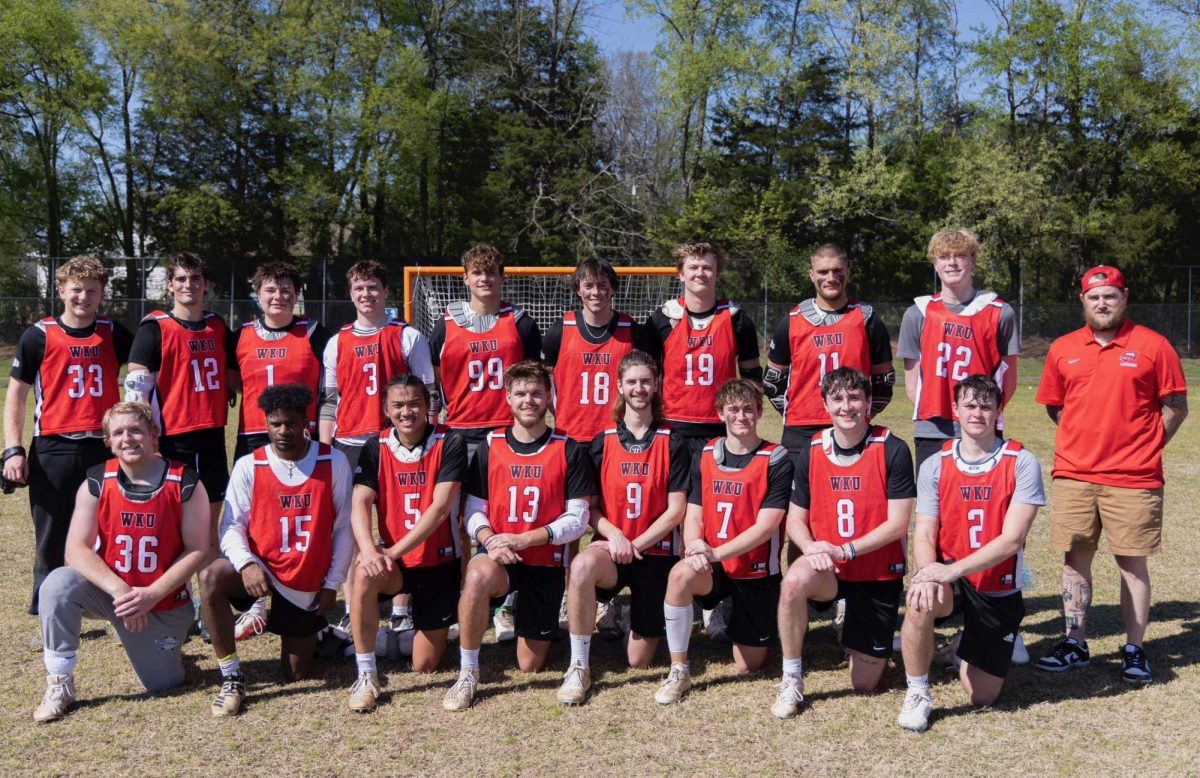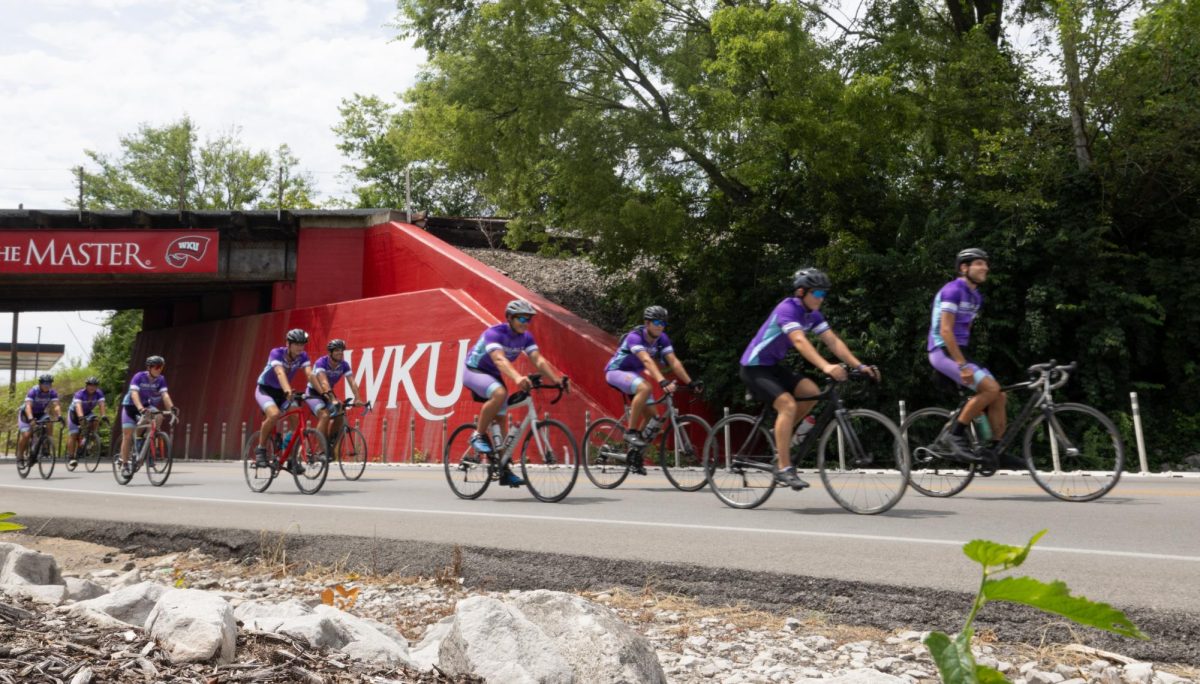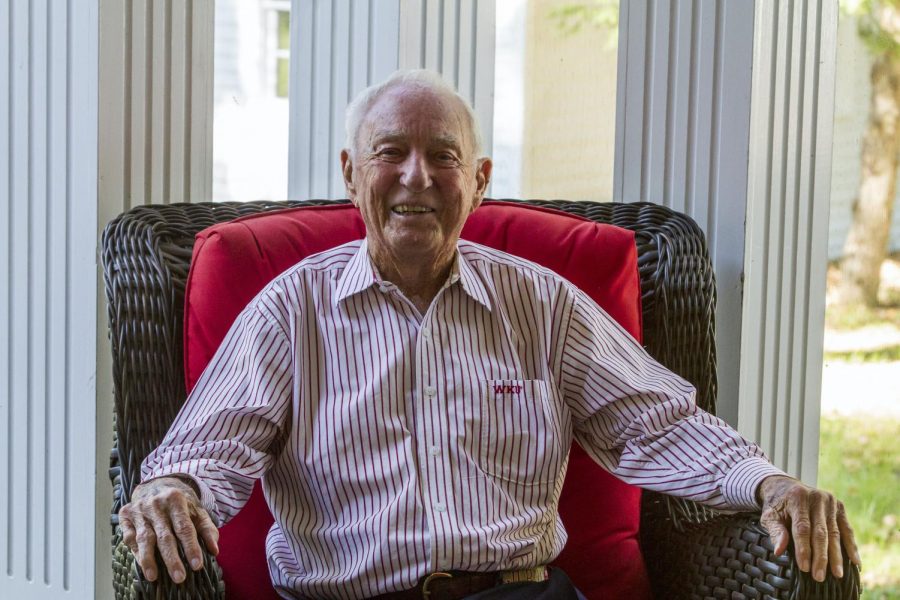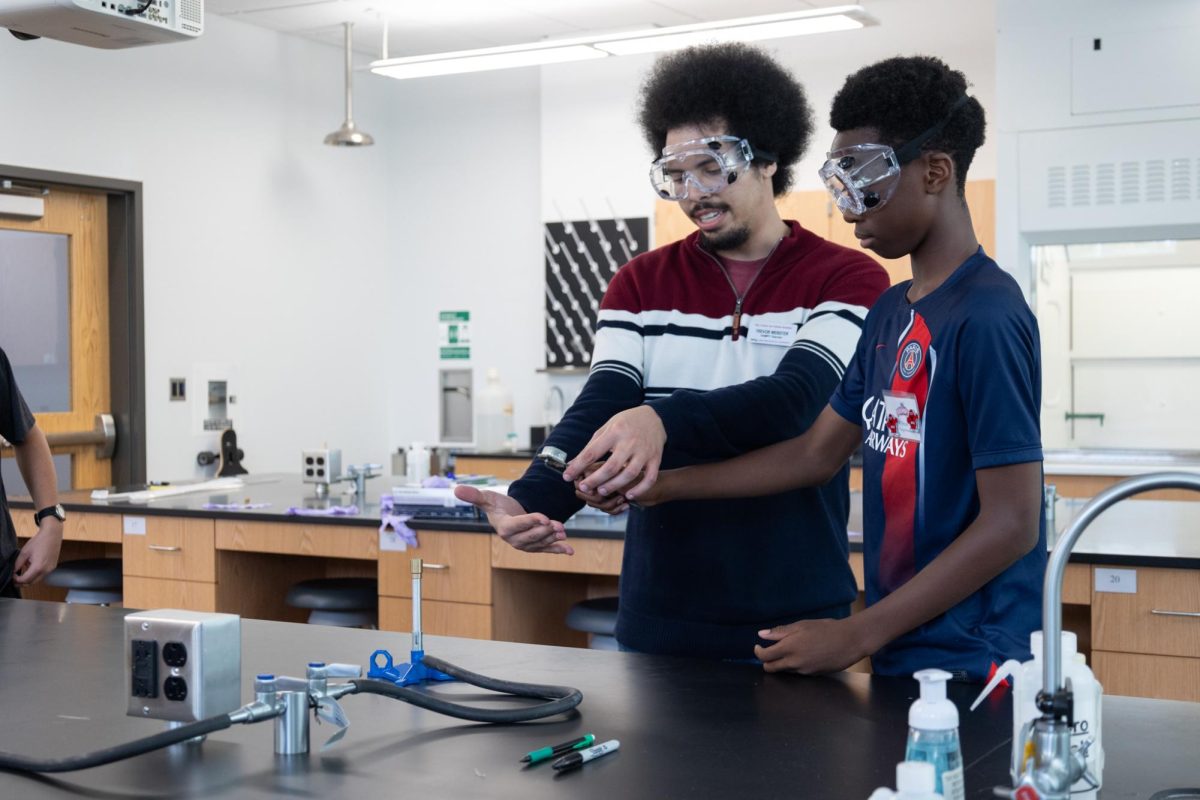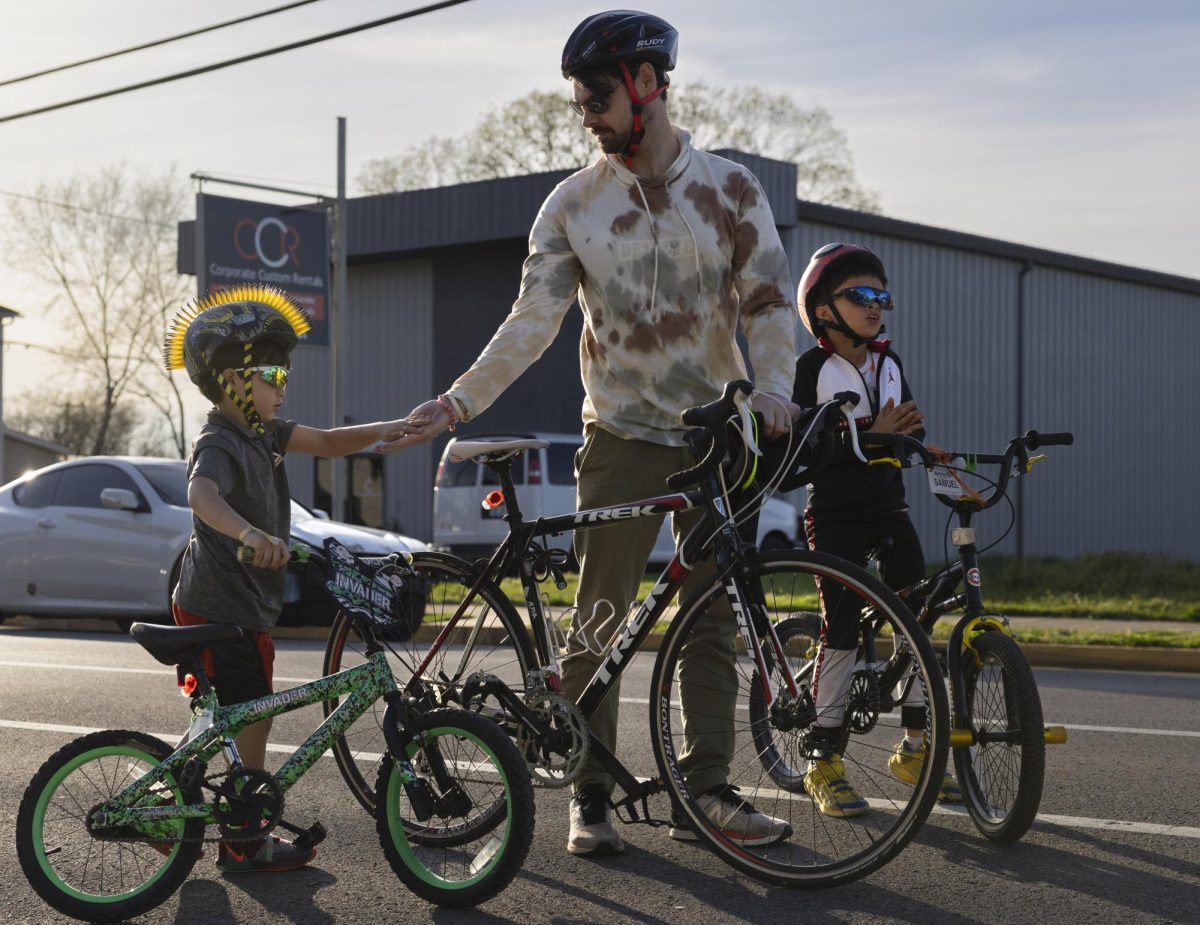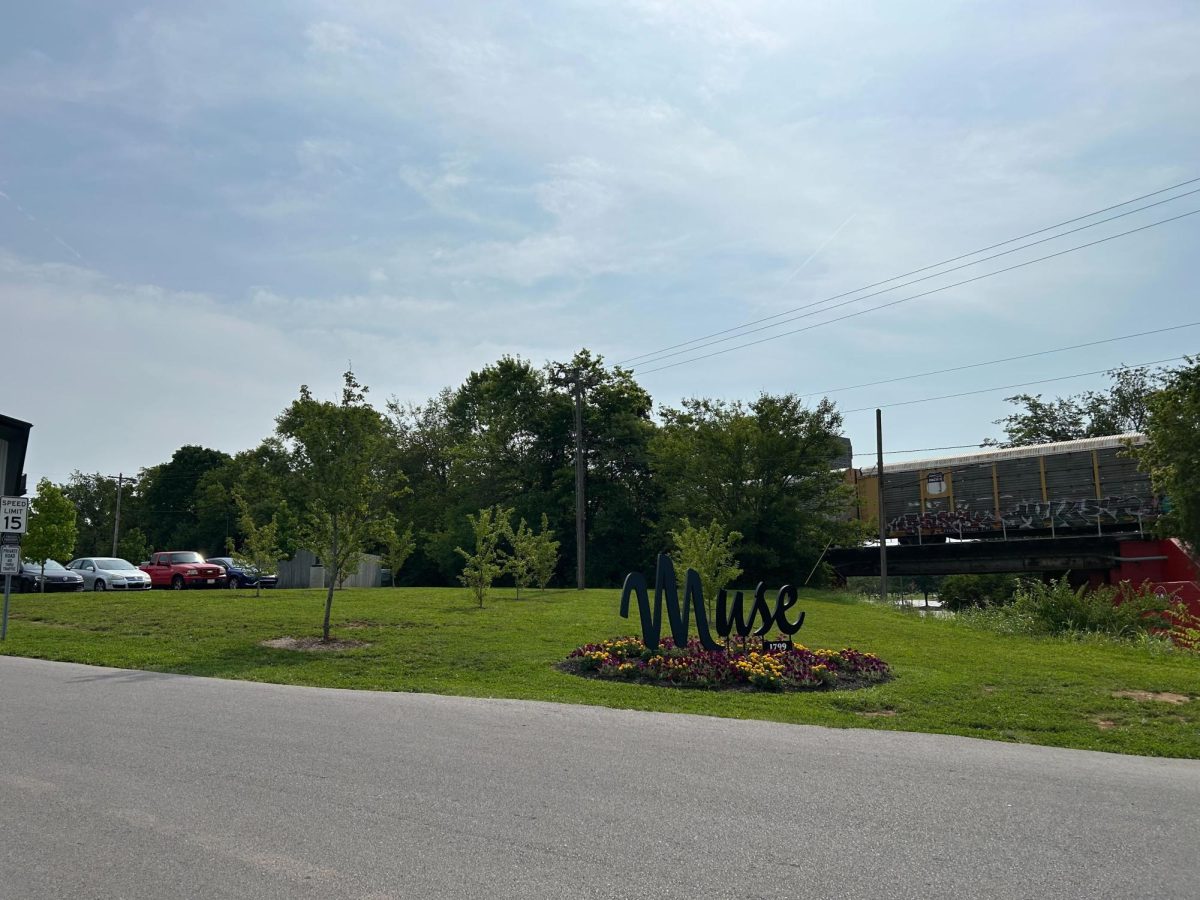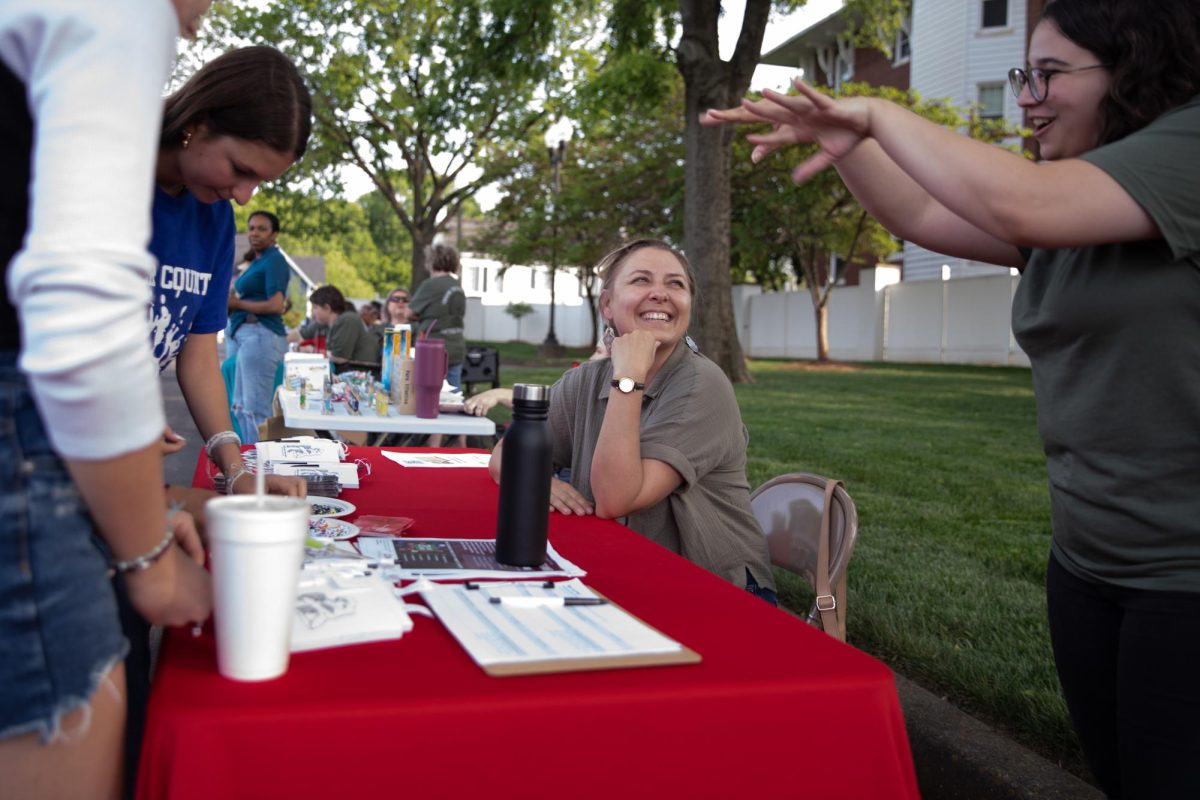WKU students and members of community of Bowling Green had a chance to watch “A Run for More” as part of the Cultural Enhancement Series, organized by the Potter College of Arts & Letters, on Nov. 16 at the Capitol.
Ray Whitehouse, director of the movie, said he hopes his first feature-length documentary provides the audience with a better understanding of what it is like to be a transgender person in Texas.
“The film is about Frankie [Gonzales-Wolfe] trying to do something that’s never been done before, which is become a transgender elected official in the state of Texas,” Whitehouse said.
Lydia Rose, a sophomore majoring in dietetics and nutrition, said she liked the documentary and its topic.
“Being in Kentucky and seeing how right now trans youth is undergoing a lot of bills that aren’t supportive of them, I thought that it was very important seeing someone from Texas who is running against what is politically kind of a normal,” Rose said.
Whitehouse said Gonzales-Wolfe’s resolve to be a pioneer prompted him to create the documentary.
“She knew that there were challenges and risks associated with it, but in spite of those things, she still pressed forward, and that’s really inspiring,” he said.
Gonzales-Wolfe was running for city council in District 8 in San Antonio, Texas, in 2019. In the documentary she said that she did not know whether she was going to win but knew that she would not be able to live with herself if she did not try.
“When we have more voices working hard for our community, we are going to be able to accomplish more,” Gonzales-Wolfe said in the documentary.
To Whitehouse, one of the key takeaways from the film is the importance of communities, as well as individual roles and relationships within communities, understanding of which he described as “an ongoing learning process.”
The filming process, Whitehouse said, began in the fall of 2016 and wrapped up in June 2022.
“It’s been a long journey,” he said. “It’s the hardest thing I’ve ever done in my life creatively, and it’s the most rewarding thing that I’ve ever done creatively too.”
Commitment was one of the challenges that Whitehouse faced during the filmmaking process. He said a lot of resources were put into the project, which he compared to “a leap of faith.”
“You hope that the thing that comes out of the film will be worth the time that you invest in it, but there were certainly times in that [filmmaking] process where I was questioning whether that was true,” Whitehouse said. “At this point, I feel pretty good about how the film came together and everything that’s happened with the film.”
“A Run for More” received a number of awards, like best documentary art feature at 2022 Fayetteville Film Fest and best Texas feature at 2022 Dallas International Film Festival, according to the documentary’s website. Additionally, Whitehouse said “A Run for More” is on track to breaking even financially.
Before the screening of the documentary at the Capitol, Whitehouse gave two guest lectures at WKU. In one of the classes, he said he talked about how the filmmaking process impacted his personal relationships.
“There were times when I was not around as much (…), but thankfully, I have people around me who were open to allowing me to not be around for periods of time,” he said. “I think I didn’t fully appreciate how much that was a challenge until going through it.”
Marlow Gawlik, WKU freshman and film major, said Whitehouse talked in his film class, which is why he decided to attend the screening. Gawlik said the documentary is an example of queer representation he would like to see in the media.
“It went deeper than a normal political documentary, and then also I liked how it incorporated her being trans,” he said.
Whitehouse said because “A Run for More” is “an unfolding action documentary,” the story is purposefully told in present tense. “What this means is that I had to be there when things were happening,” he said.
In a Q-and-A session that followed the screening of “A Run for More,” Whitehouse said that Gonzales-Wolfe offered for him to stay at her house for the month of filming. This opportunity, Whitehouse said, allowed him to get a “much more intimate picture of her life as she experienced her day-to-day ups and downs of being a candidate.”
Whitehouse said he also “got a really unique insight” into the way Gonzales-Wolfe’s husband, Jeff Wolfe, supported her.
Answering questions from Q-and-A moderator Alexandria Anderson and audience members, Whitehouse said he originally planned to make a short documentary on the importance of campaign volunteers. He said in 2016, he went to the Hillary Clinton office in San Antonio, Texas, where a staffer introduced him to Gonzales-Wolfe.
“Little did I know that two years later she would call me and say hi I’m running for office,” he said.
The screening of “A Run for More” is part of the Southern Circuit Tour of Independent Filmmakers film series, which is co-sponsored by the Potter College of Arts & Letters and the Capitol.
Anthony Harkins, WKU professor and chair of the PCAL Cultural Enhancement Series committee, said he hopes the screening helps the audience see the importance of independent filmmaking, as well as the role that electoral process plays in bringing change.
“It is difficult, but advancements can be made when people make the effort and take the risks,” he said.
News Reporter Mariia Novoselia can be reached at [email protected]














